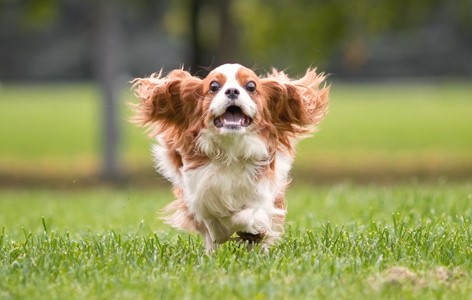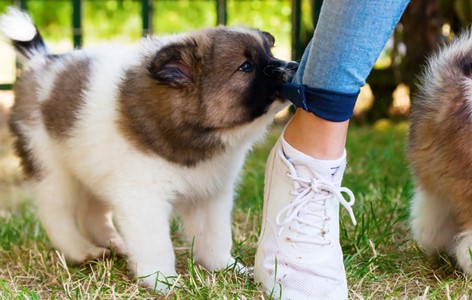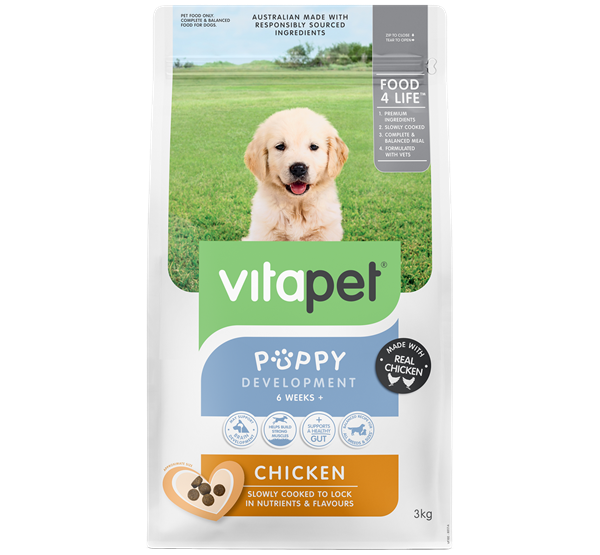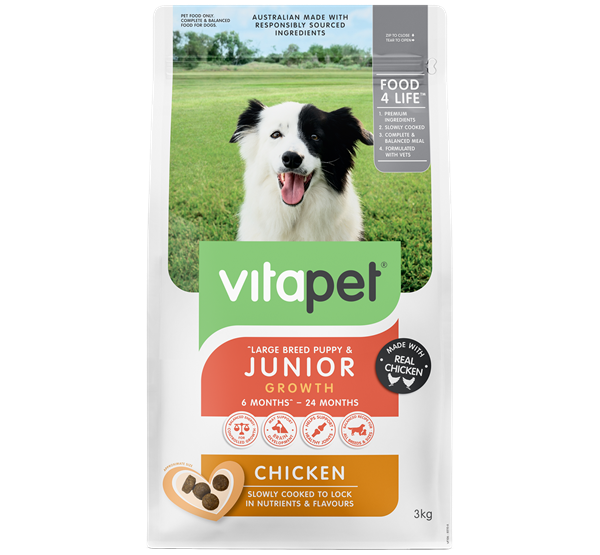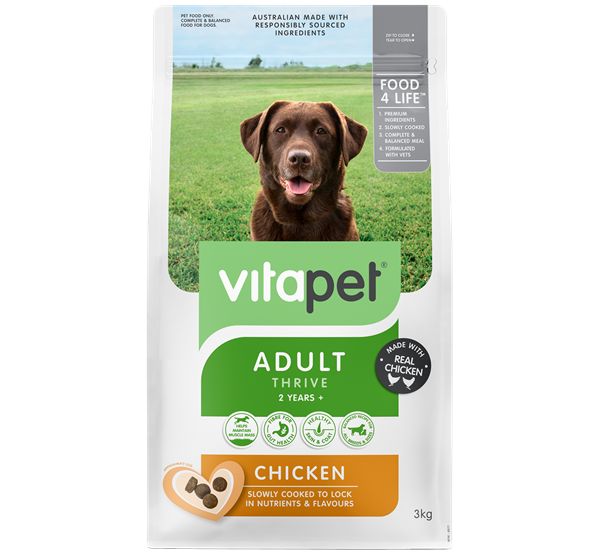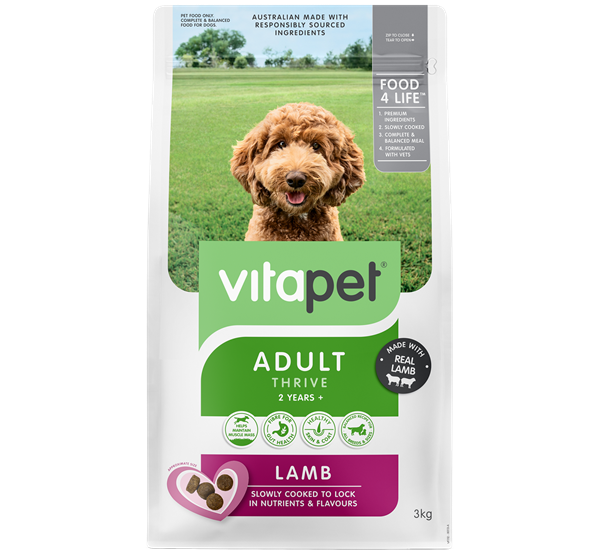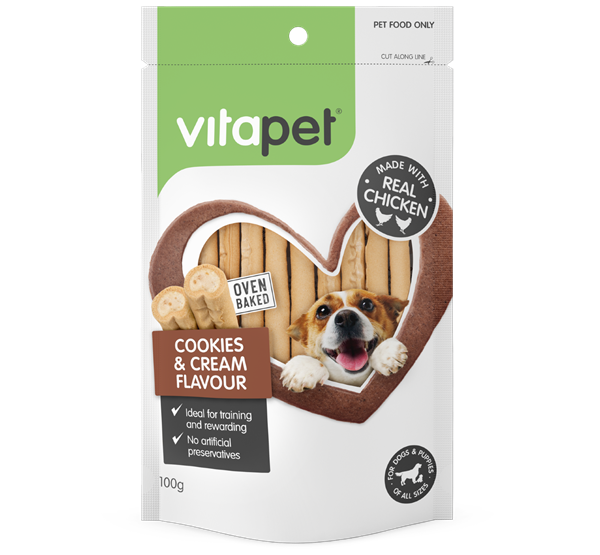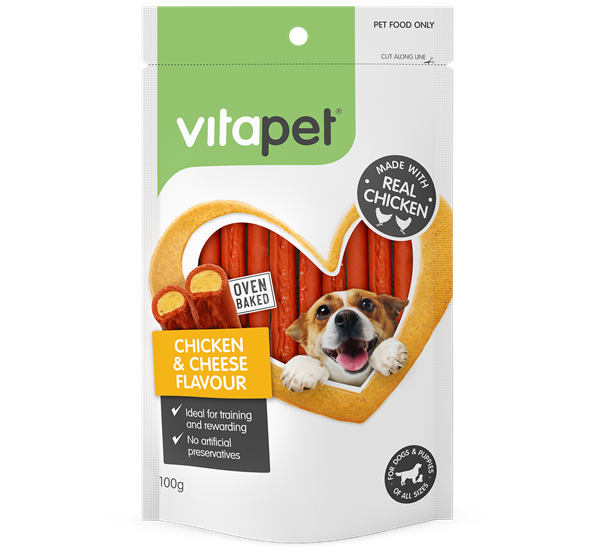Puppyhood is such a special time: your cute little fur ball is running around doing one Instagram-able thing after another while you’re sowing the seeds of friendship in what will grow to be a loving lifelong relationship with one another. But remember that puppyhood is a time for your four-legged friend to grow, learn and develop.
That’s why it’s important to give them opportunities to mentally engage.
Below, we’ve rounded up four tips to help you give your puppy the mental and physical stimulation they need to develop into a happy and well-adjusted companion and fur-ever friend.
1. Send them off to puppy school
They grow up so fast, don’t they?
Just a few months old and already ready to head off to puppy school. No need to get sentimental though, because you get to go with them! During class, your pooch will learn about social cues and how to communicate appropriately with other dogs. Also, you will learn how to ‘talk’ and listen to your puppy, and gain a better understanding of their different behaviours and cues to help you develop a strong, lifelong relationship with your new best friend.
Many vet clinics offer complimentary puppy classes that can help you lay the foundations for at-home training for many years to come. Give your local vet a call to see if they have a schedule and can fit your pooch in.
2. Teach them new tricks
Just like childhood, puppyhood is when your dog’s brain is most receptive to learning new things. So if you want to teach your pooch some fun tricks to impress, this is the best time to do it. Mental challenges provide a great brain workout and help them develop to their fullest potential.
So, if your puppy can already confidently master some basic behaviours such as ‘sit’ or ‘down’, be sure to keep the ball rolling, even as your dog matures.
You could, for example, move on to other fun tricks, like learning how to ‘shake hands’ or ‘high five’.
And it’s not just about them being well behaved, or showing off their new tricks to your friends. High-energy training also has the potential to improve your pup’s stamina, muscle tone, flexibility and focus – and most importantly, increase your mate’s confidence as they learn to master something new.
As a rule of paw, it can be a good idea to break down the trick into stages, keep training sessions short, and work at your dog’s pace – and don’t forget to reward your pooch for all the excellent work they’re doing.
3. Find the right toys
You may be surprised to see just how many innovative toys there are to keep your pup mentally occupied. Puzzle toys, for example, help your puppy develop their problem-solving skills. They usually feature different compartments to hide treats in, which your pup will then have to sniff out, or perform a task (like pawing a button) to reveal the reward. We guarantee you’ll be impressed by your pup’s high-level problem-solving skills.
Tip: It’s good to have a wide range of toys at home. Switching them up helps keep things fresh for your pup and prevents them from getting bored and losing interest.
4. Put your pup through their paces
When you were a kid, any household item could quickly be transformed into an asset in your next adventure – so why not try the same for your pup? Transforming your living room into a fun obstacle course can provide both mental stimulation and a good workout.
Some pet stores offer obstacle courses for sale, but you can also easily create your own from items you have lying around your home. Just be aware of your puppy’s capabilities so it’s challenging but not too hard – and most importantly, safe.
If you have children at home, you could repurpose things like a lightweight play tunnel for your puppy to zoom through, pool noodles as low jumping barriers or a toilet roll to create a maze.
Playing with your puppy is a joyous experience, but it can also be an invaluable and effective training experience for your furry friend. Brain-teaser games and other stimuli can go a long way toward helping your puppy grow into a happy and healthy family companion.
Your reward will be a pooch that thanks you with a lifetime of fun, love and loyalty.












